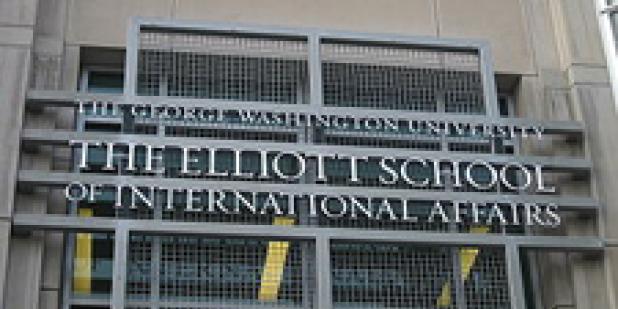Happy Lunar New Year from the USC US-China Institute!
China, Russia, and the Existing World Order: Seeking to Overthrow the Status Quo or Merely Pursuing Advantage within It?
George Washington University in Washington, D.C. presents a panel to discuss world issues.
Where

Panel I:
"Muslim Administration in Non-Arab Peripheries: Russia, China, India, and Turkey" Kimitaka Matsuzato, Hokkaido University
The world is de-secularizing. Today's religious revival grew out of religion's public function, not its appeal for personal faith. In contrast to Catholicism and Orthodoxy, Islam does not request a definite organizational structure of congregation, and is able to adapt itself to any political regime. In other words, comparing Muslim administration in these four countries has more significance than a mere minority study. Through this prism we may identify fundamental features of the four political regimes.
"The Power and Limitations of Dominant Party Control: United Russia, the Chinese Communist Party, and the Indian Congress in Comparative Perspective"
Atsushi Ogushi, Osaka University of Law and Economics
Yuko Adachi, Sophia University
Conventional wisdom states that political parties are essential for making a political order. In regional powers with a huge territory, massive population, diverse ethnic groups, rapidly growing economies and swiftly changing social conditions, dominant parties have been a useful mechanism for containing the centrifugal forces. Understanding this, the panelists will discuss the functions of dominant parties in Eurasia and their limitations.
Discussant: Marlene Laruelle, GWU
Panel II:
"Growth in the International Reserves of Russia: Implications for the World Economic System"
Shinichiro Tabata, Hokkaido University
Major regional powers in Eurasia, i.e., Russia, China, and India, accumulated substantial foreign reserves during the 2000s, which has led to the revival of the Bretton Woods international monetary system. Although the costs of this accumulation are enormous, there is a fair possibility that this system will continue in the near future.
"Comparison of Trade Liberalizations in Russia, China, and India"
Yugo Konno, Mizuho Research Institute Ltd.
Russia, China and India all introduced a broad trade liberalization at the beginning of the 1990s. However, the paces of reform differed considerably from one country to the next. Yugo Konno will compare the trade liberalizations in the three countries through an analysis of trade performances.
Please RSVP at go.gwu.edu/PanelNov21 by Friday, November 18.
Featured Articles
We note the passing of many prominent individuals who played some role in U.S.-China affairs, whether in politics, economics or in helping people in one place understand the other.
Events
Ying Zhu looks at new developments for Chinese and global streaming services.
David Zweig examines China's talent recruitment efforts, particularly towards those scientists and engineers who left China for further study. U.S. universities, labs and companies have long brought in talent from China. Are such people still welcome?






